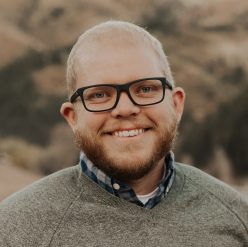
I’ve spent a bit of time this week rummaging through the 182 page PDF of the 30th Legislative Assembly of the Territory of Utah. It is not an easy task, believe me.
I expected to find more detailed record keeping of the events of that legislative session. You know, the usual stuff like the vote count, arguments in favor or against certain bills, members of the assembly who crafted each bill presented for a vote, etc. Sadly (but also maybe fortunately, considering the size of this thing), I didn’t find those details. Instead, this contains the exact wording for each law that was enacted by that specific assembly. Not what I was hoping for, but quite interesting nonetheless.
I must confess, I skimmed through a lot of this document. A lot of the language is old, makes references to amending laws that are already on the books, and discusses topics that aren’t part of our modern society. What I did find, however, was that Senator L.M. Olson was part of the body of legislators responsible for many of the current laws, practices, and institutions established by this assembly. There’s no real way for me to know for which side of each bill Olson voted, but here are some of the laws enacted during the 30th legislative assembly that I found to be quite interesting:
- Naming of Utah’s first university as, “University of Utah”.
- Prosecution of polygamous relationships.
- The observance of Labor Day in Utah.
- Granting the right to Mayors to veto City Council measures.
- The observance of Arbor Day in Utah.
- Prosecution for starting forest fires.
- In the event of bankruptcy, forced closure, or legal seizure of a company, laborer wages are considered prefered debts to prefered creditors and must be paid first.
- Prosecution for anyone acting as a pharmacist without a license & university training.
- Creation of the Bureau of Statistics.
- Observance and regulations of local beekeeping.
- Establishment and assignment of a dower for widows.
- Amount of allowable privately owned cattle on public lands (grazing).
- Establishment of a Board of Medical Examiners.
- Creation of a unified system of free schools throughout Utah Territory.
- Allowance of poor people to enact law suits without cost.
- Establishment and funding of an agricultural college (now known as Utah State University).
